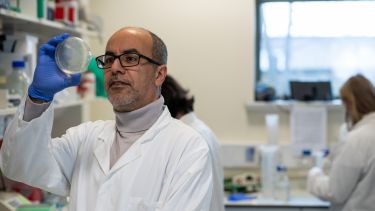Translational support
Very few academics have experience undertaking all the stages of this process from laboratory ideas to human trials. Prof Mimoun Azzouz, the director of GTIMC, is one of a handful of people in the UK that has this real world lived-experience.

The challenge for UK academics is to turn promising research from the laboratory into medicines which are safe and effective for people. This is often termed the ‘translational gap’ because of the need for multidisciplinary capabilities, and very few medicines make it through this journey. This is why large pharma companies invest so much money into research and development - less than 1% of promising targets make it to the market as a therapy.
The Innovation Hubs for Gene Therapy form the national infrastructure to assist translation of gene therapies from the strong life science academics of the UK’s prestigious institutions. The GTIMC team will combine multidisciplinary expertise, including inputs from our partners regulatory experts to:
- advise on the final clinical configuration of the therapeutic vector before initiating manufacturing. This will ensure alignment with safety and regulatory aspects;
- help with the design of GLP preclinical studies, enabling alignment with the ultimate clinical design;
- manufacture toxicology material for GLP preclinical regulatory studies; iv) manufacture GMP clinical vector for human trials.
Very few academics have experience undertaking all the stages of this process from laboratory ideas to human trials. Prof Mimoun Azzouz, the director of GTIMC, is one of a handful of people in the UK that has this real world lived-experience. In this role, he can guide scientists through the process and help them avoid the pitfalls he faced in the past.
